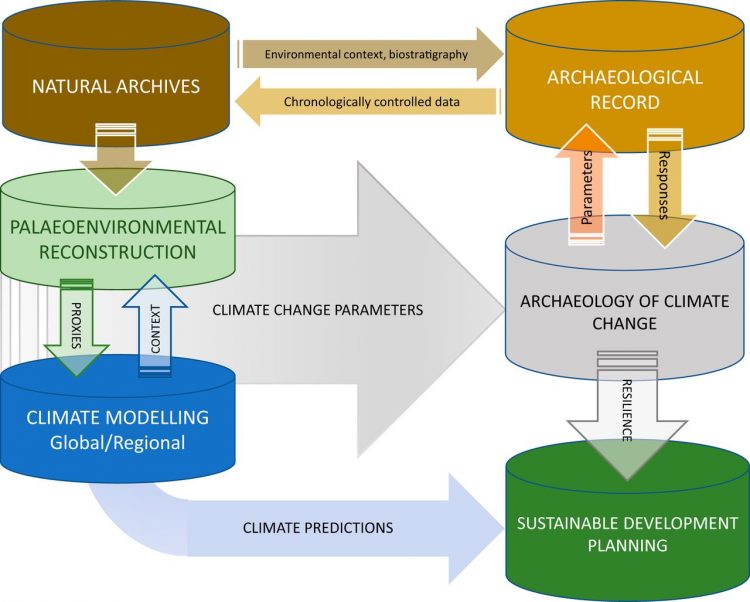Wren: Examining climate change of the past can reveal strategies to survive in the future
From floods and wildfires to hurricanes, high temperatures and drought, the devastations of climate change have left no human habituation untouched. Humans created today’s global climate crisis. Yet we are not the first humans to grapple with its challenges.
In new research published in the Proceedings of the National Academy of Sciences of the United States of America, Colin Wren, Associate Professor of Anthropology, examines how humans have successfully faced similar challenges in the past.
The study makes the case for using natural climate archives, such as pollen data, sediment records and ice cores, for a multidisciplinary examination of the past: a new discipline called “the archaeology of climate change.” This novel approach presents an opportunity to illuminate the environmental “tipping points” that have, in the past, prompted the reorganization of human systems and ecosystems.
In other words, the new discipline provides an opportunity to identify how humans persevered through climate challenges in the past — and how today’s society might use our ancestors as a model for surviving our own.
“The scope of the ecological transformations that could occur beyond 2100 CE under prevailing emission rates is truly alarming,” the researchers write. “Planning a sustainable response to climate change requires us to identify the critical climate thresholds capable of disrupting social, economic, or political systems and culturally appropriate strategies for countering such disruptions. [Yet] the sensitivity of human systems to the full range of conditions predicted under different future climate scenarios remains largely untested.”

“We contend that a multidisciplinary science of the past—an ‘archaeology of climate change’ —provides a solid foundation for assessing the implications of climate change across cultures and helps design sustainable development strategies.”
In the past, humans have had to adapt to a number of environmental pressures caused by climate change, including sea level change, rapid cooling and warming, climatic instability and prolonged drought. For example, rapid sea level changes during the Earth’s last deglaciation caused today’s Cree people to favor topographically stable locations where the impact of flooding would be lessened.
Wren and the paper’s co-investigators write that examining the archaeological record can illuminate the “environmental tipping points” that forced humans to adapt to changing circumstances. And, because many of these past adaptations to environmental change were highly successful, they could be readapted to modern contexts.
“The archaeological record shows us that the long-term survival of our species hinges on our ability to find cultural solutions to environmental challenges,” the researchers write.
And furthermore, the archaeology of climate change — the study of climate change in the past — has a critical role to play in predictions for humanity’s future.
“Human groups differ in their ability to capitalize on the opportunities offered by environmental change and are not equally successful at adapting to change,” the researchers write. “The archaeology of climate change has an important role to play: highlighting the importance of cultural diversity and encouraging scientists, policymakers, and stakeholders to engage with the past to help plan a sustainable future.”
Colin Wren writes, researches and teaches in the Department of Anthropology, housed within the College of Letters, Arts and Sciences at UCCS. Read the full research paper, titled “The archaeology of climate change: The case for cultural diversity” and published in the Proceedings of the National Academy of Sciences, online. Learn more about Wren’s work on the Department of Anthropology website.